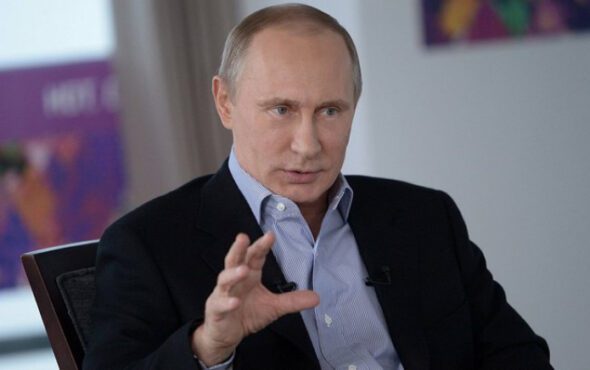
Vladimir Putin has signed some of the world’s most extreme anti-trans legislation into law, banning all forms of gender-affirming care in Russia.
This includes gender-affirming surgery and hormone therapy, according to The New York Times.
The law, which was signed by the Russian president on 24 July, also blocks trans people from changing the gender identity listed on official documents, such as passports.
Marriages in which one person has “changed gender” will be annulled and these couples will be prohibited from adopting children.
Russian lawmakers in favour of the law have described it as a step towards ‘protecting’ the country’s so-called traditional values.
READ MORE: What does Russia’s anti-transition bill mean for trans people?
When the ban was unanimously passed by the lower house of parliament earlier this month, Badma Bashenkaev, Chairman of the State Duma Committee on Health Protection, said: “We have our Russian families, and the liberalisation of such phenomena can be the first step on the road to hell.”
Nef Cellarious, a representative of LGBTQ+ rights group Vykhod, told Reuters the new law “is a logical continuation of the repressive policies of the Russian government, not only against LGBTQI people, but against human rights, freedom of speech, and democracy.”
Russia’s ‘LGBT propaganda’ law now applies to all adults
The legislation comes as part of an ongoing crackdown on LGBTQ+ rights in Russia.
Last year, Putin signed a law expanding Russia’s ‘LGBT propaganda’ restrictions to all adults.
The move effectively outlawed any public expression of LGBTQ+ behaviour or lifestyle in the country.
The original version of it was implemented in 2013 and put a ban on the promotion of all “non-traditional” sexual relationships among minors.
READ MORE: Russia fines Google for refusing to remove LGBTQ+ content
It has since been used as justification to stop Pride marches, prevent minors from watching content with LGBTQ+ themes and to detain activists.
Under the new legislation, which was signed by Putin on 5 December 2022, any event or act viewed as an attempt to “promote” homosexuality could result in a fine of up to 400,000 roubles (£5,400) for individuals and 4,000,000 roubles (£68,400) for legal entities.
Despite homosexuality being legal in Russia since 1993, LGBTQ+ people face ongoing societal challenges in the country.
Hate crimes based on sexual orientation and gender identity are not prohibited by law, and no anti-discrimination protections for LGBTQ+ exist.



